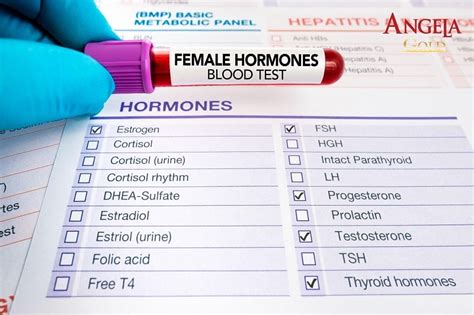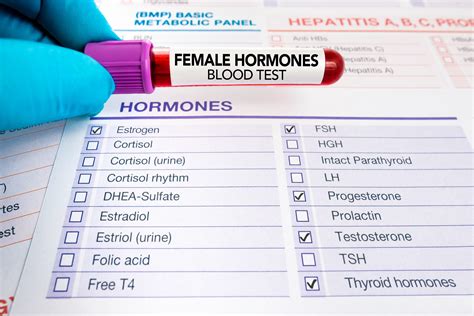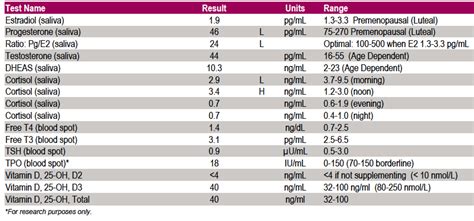Intro
Discover accurate Hormone Blood Work Testing, including thyroid, cortisol, and insulin levels, to diagnose hormonal imbalances, menopause, and adrenal fatigue, and learn how to interpret test results for optimal health and wellness.
Hormone imbalance is a common health issue that affects millions of people worldwide, leading to a wide range of symptoms such as fatigue, weight gain, mood swings, and sleep disturbances. One of the most effective ways to diagnose hormone imbalance is through hormone blood work testing. This testing involves measuring the levels of various hormones in the blood to determine if they are within the normal range. In this article, we will delve into the world of hormone blood work testing, exploring its importance, benefits, and what to expect from the testing process.
Hormones play a crucial role in regulating various bodily functions, including growth, development, metabolism, and reproductive processes. When hormone levels become imbalanced, it can have a significant impact on overall health and wellbeing. Hormone blood work testing is a valuable tool that helps healthcare providers diagnose and treat hormone-related disorders, such as hypothyroidism, hyperthyroidism, polycystic ovary syndrome (PCOS), and adrenal fatigue. By identifying hormone imbalances, healthcare providers can develop personalized treatment plans to restore balance and alleviate symptoms.
The importance of hormone blood work testing cannot be overstated. It provides a comprehensive picture of hormone levels, allowing healthcare providers to identify underlying issues and develop targeted treatment strategies. Moreover, hormone blood work testing can help prevent long-term health consequences associated with hormone imbalance, such as osteoporosis, cardiovascular disease, and certain types of cancer. With the increasing awareness of hormone health, more people are turning to hormone blood work testing to take control of their health and wellbeing.
Hormone Blood Work Testing: What to Expect

Types of Hormone Tests
There are several types of hormone tests, each measuring different hormone levels. These include: * Thyroid function tests: Measure TSH, FT4, and FT3 levels to diagnose thyroid disorders such as hypothyroidism and hyperthyroidism. * Adrenal function tests: Measure cortisol and aldosterone levels to diagnose adrenal insufficiency and Cushing's syndrome. * Reproductive hormone tests: Measure FSH, luteinizing hormone (LH), and estrogen levels to diagnose infertility, PCOS, and menopause. * Insulin and glucose tests: Measure insulin and glucose levels to diagnose insulin resistance and diabetes.Benefits of Hormone Blood Work Testing

How to Prepare for Hormone Blood Work Testing
To ensure accurate test results, it is essential to prepare for hormone blood work testing. Here are some tips: * Fast for 8-12 hours before the test, if required * Avoid taking certain medications, such as birth control pills and thyroid medications, for a specified period * Inform your healthcare provider about any medications or supplements you are taking * Avoid strenuous exercise and stress before the test * Get plenty of rest and sleep before the testInterpreting Hormone Blood Work Test Results

Common Hormone Imbalances and Their Symptoms
Here are some common hormone imbalances and their symptoms: * Hypothyroidism: Fatigue, weight gain, dry skin, hair loss, and cold intolerance * Hyperthyroidism: Weight loss, anxiety, irritability, heat intolerance, and rapid heartbeat * Adrenal insufficiency: Fatigue, weight loss, low blood pressure, and skin discoloration * Polycystic ovary syndrome (PCOS): Irregular menstrual cycles, weight gain, acne, and excess hair growth * Insulin resistance: Weight gain, high blood sugar, and increased risk of diabetes and cardiovascular diseaseHormone Replacement Therapy (HRT) and Other Treatment Options

Risks and Side Effects of Hormone Replacement Therapy
While HRT can be effective in restoring hormone balance, it is not without risks and side effects. These may include: * Blood clots and stroke * Breast cancer and uterine cancer * Gallstones and liver disease * Mood changes and depression * Weight gain and fluid retentionConclusion and Next Steps

We invite you to share your thoughts and experiences with hormone blood work testing in the comments below. If you found this article informative, please share it with others who may benefit from this information. Take the first step towards restoring hormone balance and improving your overall health and wellbeing.
What is hormone blood work testing?
+Hormone blood work testing is a diagnostic test that measures the levels of various hormones in the blood to determine if they are within the normal range.
What are the benefits of hormone blood work testing?
+The benefits of hormone blood work testing include early detection and diagnosis of hormone-related disorders, personalized treatment plans, and prevention of long-term health consequences associated with hormone imbalance.
How do I prepare for hormone blood work testing?
+To prepare for hormone blood work testing, fast for 8-12 hours before the test, avoid taking certain medications, inform your healthcare provider about any medications or supplements you are taking, avoid strenuous exercise and stress, and get plenty of rest and sleep before the test.
What are the risks and side effects of hormone replacement therapy?
+The risks and side effects of hormone replacement therapy may include blood clots and stroke, breast cancer and uterine cancer, gallstones and liver disease, mood changes and depression, and weight gain and fluid retention.
How do I interpret my hormone blood work test results?
+Interpreting hormone blood work test results requires a comprehensive understanding of hormone levels and their reference ranges. Consult with your healthcare provider to review your test results and develop a personalized treatment plan.
